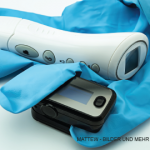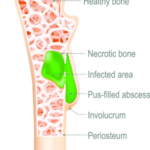WASHINGTON, D.C.—It’s an exciting time in the field of autoinflammation, but it’s still fairly new at almost 30 years old. Researchers are still discovering new autoinflammatory diseases (AIDs) with both monogenic and polygenic multifactorial causes.
At the ACR Convergence 2024 session SURF’n Autoinflammation—Evaluation and Management of Syndrome of Undifferentiated Recurrent Fever, Lori Broderick, MD, PhD, director, Recurrent Fever Disorders Clinic, Rady Children’s Hospital-San Diego, and associate professor of pediatrics, Division of Allergy, Immunology, Rheumatology and Kawasaki Disease, University of California San Diego (UCSD), La Jolla, Calif., shared work from her clinic that led to the new classification of an emerging entity in this space: syndrome of undifferentiated recurrent fever (SURF).
From Monogenic to Polygenic & Multifactorial

Dr. Broderick
The identification of named AIDs represents true bench-to-bedside medicine. “Autoinflammatory disease identification is driven by patients—the ones constantly coming back to the clinic that you’re just looking for a diagnosis for,” Dr. Broderick explained.
As a pediatric allergy/immunologist, Dr. Broderick thinks about immune dysregulation from a different perspective than most of us do as rheumatologists. Immune dysregulation can fall into multiple categories, ranging from immunodeficiency and atopic disease, to autoimmunity, hyperinflammation, auto-inflammation and dysimmunopoiesis (i.e., primary failure or expansion of “immune” cells, like lymphoma and myelofibrosis).
Over the past 30 years, more than 40 different monogenic disorders have been defined in the autoinflammatory space. Dr. Broderick pointed to a 2020 review of monogenic autoinflammatory disorders by rheumatologist Peter A. Nigrovic, MD, and colleagues that summarizes them particularly well.1 “This is one of the best reviews on the topic. No matter how the patient presents to you in clinic, you may be able to find the correct diagnosis in the chart in this paper,” she said.
However, we are now moving away from the monogenic, autosomal dominant and autosomal recessive AIDs into things that are a bit more common—the polygenic and multifactorial diseases. However, Dr. Broderick explained, “The challenging aspect about these diseases is that the phenotypes might not be as extreme as the monogenic disorders.” These patients’ symptoms may not be as striking, but they’re prominent enough to disrupt the daily life. “My child is sick all the time” is a common refrain heard in her clinic.
“My Child is Sick all the Time”
In the past few years, the Recurrent Fever Disorders Clinic at UCSD—Rady Children’s Hospital has grown exponentially, and Dr. Broderick and colleagues are seeing more and more patients that don’t fit into any known AID categories. Many patients are being referred given concern for periodic fever, aphthous stomatitis, pharyngitis and adenitis (PFAPA) syndrome.


